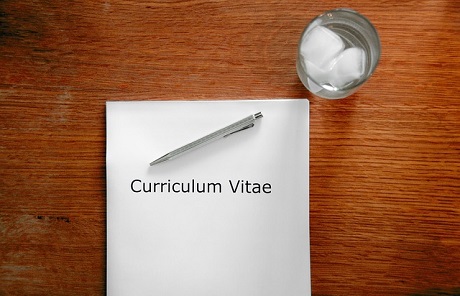
Quality over Quantity: How the Best CVs Say More With Less
- February 26, 2024
As one of the most important documents in the first stage of a candidate’s job search (alongside the LinkedIn profile), the CV is arguably an inexhaustible topic of discussion for hirers and professionals alike, particularly where relevance, structure and formatting are concerned. And although these are still very much pertinent, an equally crucial – and often overlooked – aspect of CV crafting is the skill of knowing what has no place on it, and what can be detrimental to its effectiveness.
Spending time reviewing and improving your CV is undoubtedly time well spent, although you should never just cram it with additional points if they aren’t going to add value to any application or to enhance your profile.
Ensuring there is the right amount of information on the document to demonstrate suitability for the role is important, but it’s a fine balance to ensure that it is to the point and not full of distractions or waffle – especially when you consider that hiring managers and recruiters take only a few seconds to scan the document and make a decision to progress, or not.
As such, it’s always worthing considering what information serves little to no purpose in your CV and worse, is potentially squandering your prospects altogether…
Less is More
Starting with the often-overlooked but opening information, things like your age, marital status, and arguably personal hobbies should not be in your CV as they not only hold little relevance to the position (and thus, little value to a hirer ) but they can potentially prove detrimental to your efforts, as in having them present they waste the precious time your CV has been afforded to catch a hiring manager’s eye, and can introduce an unconscious bias towards applicants of certain age groups or demographic.
If you do want to add in a short section about interests outside of work, it’s usually best to give this no more than a few lines – you can always leave talking about this personal element in your profile to the interview itself. These should also fit in with the professional persona you wish to portray = so talking about how you love going out with your friends on an evening, or a vanilla ‘I like doing exercise’ are taking up precious real estate on the page that can be much better-utilised.
Cull the Obvious
Similarly, any notices informing employers that ‘references are available upon request’ are unnecessary and should be taken out. This is already implied through your job application itself and so is an obvious fact that doesn’t need reiterating in your CV. The same thing applies to any ‘salary negotiable’ statements – this is not new or unexpected information to employers and is needlessly taking up space. Ultimately, any generalist information that doesn’t communicate what the hiring company will be looking for in your CV shouldn’t be included and failure to keep your CV clutter-free can give off the impression that little effort has gone into tailoring it for the role, and that it is being used as a catch-all document for multiple job applications.
If you’re wondering why that might be that off-putting to recruiting companies, it is because it is one of the tell-tale signs of a spray-and-pray job application approach. And whether intentional or not, it is a surefire way to get yours binned.
Avoid the Jobseeker Jargon Trap
Pertinent to this is the common mistake of peppering a CV with all sorts of jargon and cliches, which is just as damaging to a candidate’s prospects if not more. When writing a CV to present as compelling a narrative of your professional journey as possible, the use of certain phrases or buzzwords to ‘doll up’ one’s profile can be a tempting move (and it may be the case that these have slipped into your vernacular simply due to ignorance); however, is an all-too-familiar ploy to employers, and an eyesore they will readily want to avoid, especially if such statements or phrases aren’t backed up by any quantifiable evidence.
The language you use to highlight your skills and suitability is every bit as important as the information it is trying to convey and requires just as much thought and consideration. As such, a sense check of where your CV leans more on generic statements instead of measurable results, and how it can be better-written is essential if you’re aiming to craft one that catches the eye.
With the widespread adoption of the likes of ChatGPT and other AI tools, it’s also worth considering how such tools can help (or hinder) in this regard.
If you do choose to utilise an AI tool to support, it is a well-known no-no to write the whole document from scratch, simply because it increases the likelihood of fabricated details being added to your draft. A better approach would be to do it section by section, beginning with your personal statement, then your experience & responsibilities, then your achievements, and so on. This not only helps to avoid having false information but it also makes it easier to spot it as you work through your draft section by section, should it still be added in, and allows you to better format your CV while doing so.
Click here for more information on how to avoid the jobseeker jargon trap.
Filter Out the Chaff
This applies to any other kind of passive language present in your CV or anything speculative, such as extensive lists of job roles and responsibilities without any relevant accomplishments. A career is not something that just happened to you and should never be treated as such by the language you use to describe why you are a good fit for the role.
Your CV should be filled with examples where you actively take credit for your work and achievements to quantify your value as a potential hire, and where this is absent it signals a lack of confidence in your suitability as a candidate to hirers, which can seriously hurt your chances of employment. Remember that employers will want to ensure their investment in a candidate is going to yield encouraging results, and if your CV doesn’t give them the impression that you are worth that investment, they will waste no time with time consuming interview process.
Finally,
When it comes to the communication of information through any media, what is said is so often what comprises the subject of discussion, when it is really how such information is structured and conveyed and – at times, what is omitted – that tends to make the difference in how it is processed and interpreted.
This is what underpins the skill of CV crafting and where the ones that top the pile shine – no matter the role, specialism or sector in question. When every second counts with your prospects on the line, your CV needs to sell you in as clear and compelling a manner as possible – a feat we as recruiters are very much aware can be tricky at times, even for the most experienced of professionals. That’s why at Clayton Recruitment, our expertise goes beyond the often perceived ‘transactional’ process of matching CVs to open roles.
We are every bit as committed to empowering the professionals we work with to present themselves as the first choice hire, whether that be at the initial screening or interview stages. If your next career move seems to be very much on the horizon but needs clarity with regard to the way forward, we are here to help. Give us a call on 01772 259 121 or contact us here.
About Clayton Recruitment
Clayton Recruitment has been partnering with organisations across the country since 1989 and during that time has built up an excellent reputation for trust and reliability.
With specialist divisions covering Commercial, Financial, and Engineering appointments, on a permanent basis.
If you are building your existing team or looking for your next career move, we can help. And, if you are currently employed, you can be assured of complete confidentiality, professionalism, and honesty throughout the process – as standard.
Click here to speak to one of our experienced specialists or call 01772 259121 for more information on how our exceptional recruitment experience can help your career aspirations.








